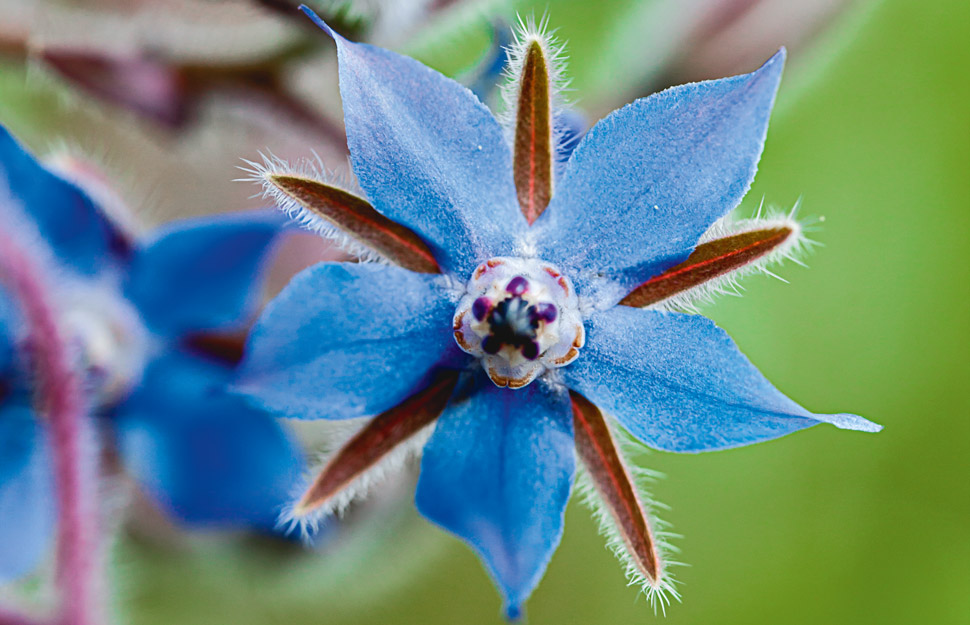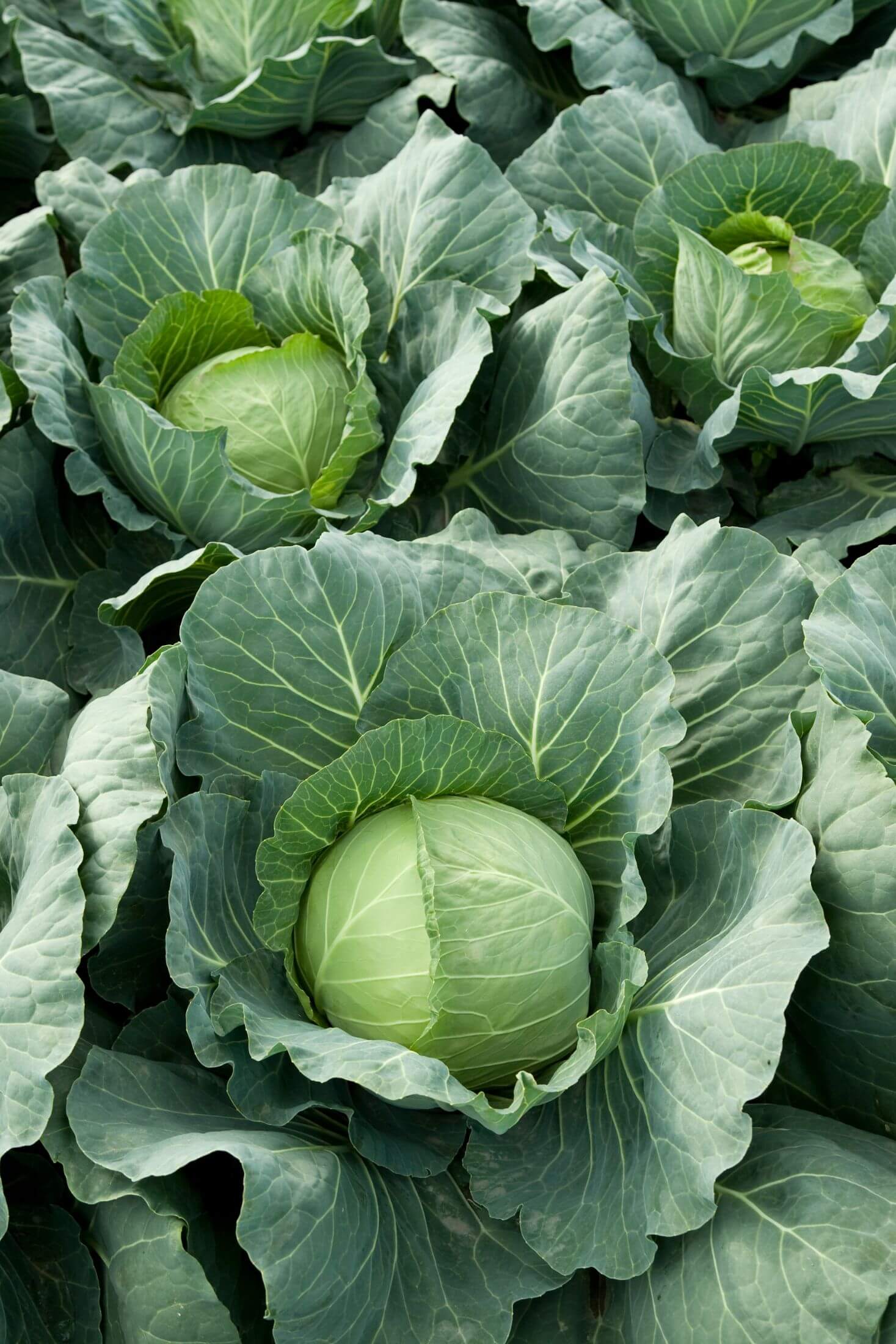Keep Cabbage Worms Away With Companion Planting
Keep Cabbage Worms Away with Companion Planting
Cabbage worms are a common pest in gardens, and they can quickly devour cabbage, broccoli, kale, and other brassicas. While there are a number of ways to control cabbage worms, companion planting is a natural and effective method.
Companion planting is the practice of planting certain plants together to benefit each other. Some plants, for example, can repel pests, while others can attract beneficial insects that prey on pests. By planting the right companion plants together, you can create a healthy and balanced ecosystem in your garden that will help to keep cabbage worms away.
Here are some of the best companion plants for cabbage:
- Nasturtiums: Nasturtiums are a beautiful and edible flower that is known to repel cabbage worms. They also attract beneficial insects, such as ladybugs and lacewings, which prey on pests.

- Marigolds: Marigolds are another flower that is effective at repelling cabbage worms. They also release a chemical that can suppress the growth of cabbage moth eggs.

- Chives: Chives have a strong scent that cabbage worms find unpleasant. They also attract beneficial insects, such as hoverflies, which prey on pests.
- Garlic: Garlic is another strong-scented herb that cabbage worms avoid. It also releases a chemical that can kill cabbage moth eggs.

- Thyme: Thyme has a pleasant scent for humans, but it is aversive to cabbage worms. It also attracts beneficial insects, such as parasitic wasps, which prey on pests.
- Celery: Celery is said to repel cabbage moths. It also has a similar growth habit to cabbage, so it can help to confuse the moths and prevent them from finding your cabbage plants.
- Borage: Borage is a flowering herb that is known to attract beneficial insects, such as ladybugs and lacewings. These insects prey on pests, such as cabbage worms, and help to keep them under control.

- Yarrow: Yarrow is another flowering herb that attracts beneficial insects. It also releases a chemical that can suppress the growth of cabbage moth eggs.

In addition to these plants, there are a few other things you can do to help keep cabbage worms away:
- Plant your cabbage in a sunny location with well-drained soil. Cabbage worms prefer moist, shady conditions, so planting your cabbage in a sunny spot will help to deter them.
- Inspect your cabbage plants regularly for signs of pests. If you see any cabbage worms, remove them by hand as soon as possible.
- Use row covers to protect your cabbage plants. Row covers are a physical barrier that can keep cabbage worms and other pests out of your garden.
- Encourage beneficial insects. Beneficial insects, such as ladybugs and lacewings, prey on pests, such as cabbage worms. You can encourage beneficial insects by planting flowers that attract them, such as marigolds and yarrow.
By following these tips, you can help to keep cabbage worms away from your garden and enjoy a bountiful harvest of cabbage and other brassicas.
Cabbage worms are a common pest in gardens, but there are a number of companion plants that can help to deter them. Some of the best companion plants for cabbage worms include:
- Marigolds: Marigolds are a classic companion plant for cabbages, and they are effective at repelling cabbage moths, which are the adults of cabbage worms.
- Nasturtiums: Nasturtiums are another good choice for companion planting with cabbages. They are not only attractive flowers, but they also emit a scent that cabbage worms find unpleasant.
- Chives: Chives are a good insect repellent, and they can help to keep cabbage worms away from your plants.
- Wormwood: Wormwood is a strong-scented herb that is said to repel cabbage worms.
- Yarrow: Yarrow is a flowering plant that attracts beneficial insects, which can help to control cabbage worm populations.
If you are looking for more information about companion planting for cabbage worms, I recommend visiting the Gardenia Inspiration. This website has a wealth of information on the topic, including a list of companion plants, tips on how to plant them, and information on how to control cabbage worms if they do become a problem.
FAQ of companion planting for cabbage worms
Q: What are cabbage worms?
A: Cabbage worms are the larvae of the cabbage moth. They are green or brown caterpillars that can eat through cabbage leaves, making them unsightly and inedible.
Q: What are some companion plants that can help repel cabbage worms?
A: There are a number of companion plants that can help repel cabbage worms. Some of the most effective include:
- Marigolds: Marigolds are a popular choice for companion planting because they emit a scent that repels cabbage moths.
- Nasturtiums: Nasturtiums are another good option for companion planting. They have a strong scent that cabbage worms dislike, and they can also help to attract beneficial insects that prey on cabbage worms.
- Chives: Chives are a good companion plant for cabbage because they release a volatile oil that helps to repel cabbage moths.
- Wormwood: Wormwood is a strong-smelling herb that can help to repel cabbage worms.
- Thyme: Thyme is another herb that can help to repel cabbage worms.
Q: What are some other ways to control cabbage worms?
A: In addition to companion planting, there are a number of other ways to control cabbage worms. Some of these methods include:
- Handpicking: This is the most effective way to control cabbage worms. Simply pick off the worms and dispose of them.
- Biological controls: There are a number of beneficial insects that prey on cabbage worms. These insects can be purchased from garden centers or online.
- Insecticidal soap: Insecticidal soap is a non-toxic way to kill cabbage worms. It works by breaking down the insect's outer layer, causing it to die.
- Neem oil: Neem oil is another non-toxic option for controlling cabbage worms. It works by disrupting the insect's growth and development.
Q: How can I prevent cabbage worms from infesting my garden?
A: There are a number of things you can do to prevent cabbage worms from infesting your garden. Some of these tips include:
- Plant resistant varieties: There are a number of cabbage varieties that are resistant to cabbage worms.
- Rotate your crops: Rotating your crops helps to break the cabbage worm life cycle.
- Keep your garden clean: Remove any debris from your garden, as this can provide a hiding place for cabbage worms.
- Inspect your plants regularly: Inspect your plants regularly for signs of cabbage worms. If you see any worms, take action immediately.
Image of companion planting for cabbage worms
- Image 1: A garden bed with cabbage plants, marigolds, and nasturtiums. The caption reads "Marigolds and nasturtiums are both companion plants for cabbage, as they help to deter cabbage worms."

- Image 2: A close-up of a cabbage plant with marigolds growing nearby. The caption reads "Marigolds release a scent that cabbage worms find unpleasant, so they will avoid plants that are near marigolds."

- Image 3: A garden bed with cabbage plants, thyme, and chives. The caption reads "Thyme and chives are both insect-repelling herbs that can be planted near cabbage to help keep cabbage worms away."

- Image 4: A close-up of a cabbage plant with thyme growing nearby. The caption reads "Thyme has a strong scent that cabbage worms find unpleasant, so they will avoid plants that are near thyme."

- Image 5: A garden bed with cabbage plants, tomatoes, and basil. The caption reads "Tomatoes and basil are both beneficial companion plants for cabbage, as they help to attract beneficial insects that prey on cabbage worms."

Post a Comment for "Keep Cabbage Worms Away With Companion Planting"